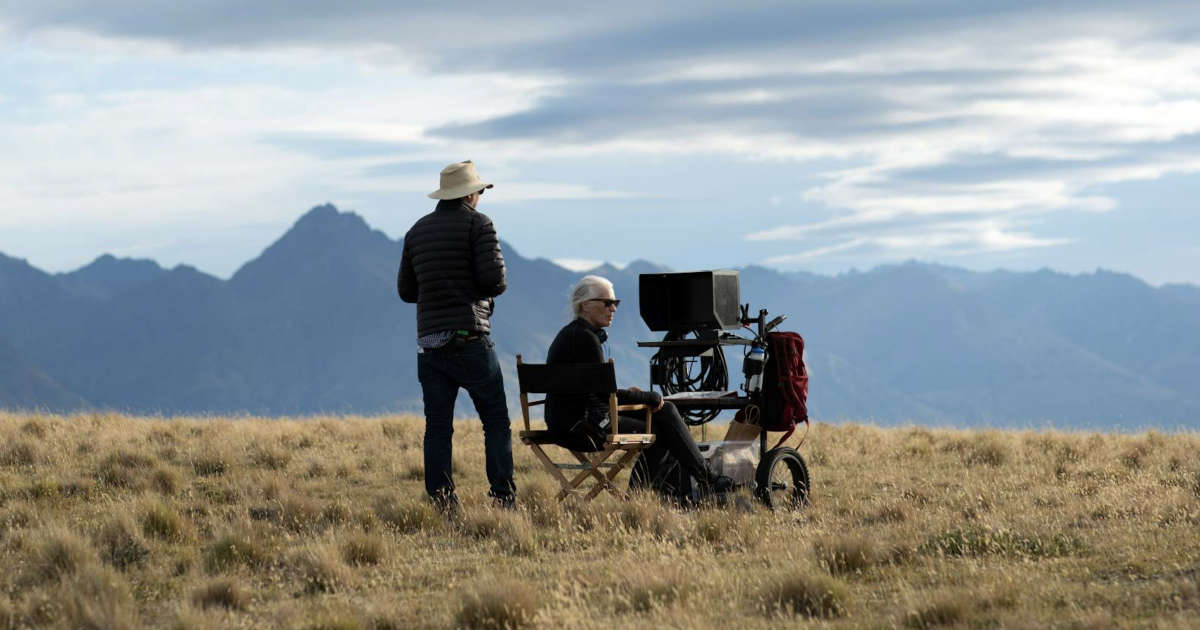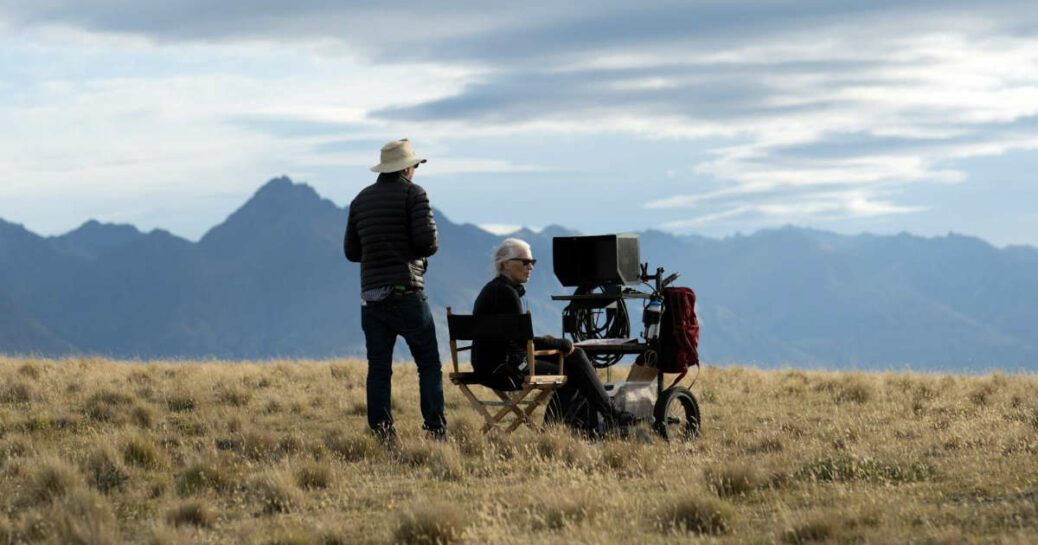
In 2014, Michel Ciment published a book entitled Jane Campion by Jane Campion at Les Cahiers du cinéma. The famous critic has just delivered a second, expanded and updated edition of this biography, which echoes the Lumière Prize awarded last October to Jane Campion at the 13th edition of the eponymous Lyon festival. This book was acclaimed in its first edition by the French Union of Film Critics, which awarded the author its Prize for Best Film Album.
Michel Ciment‘s ambition lies in the exhaustive and chronological review of Jane Campion’s filmography. Her cinematographic work begins with the writing and directing of six short films during the 1980s. This was followed by her first feature film for television – Two Friends (1986) – and the writing and directing of Sweetie (1989), her first film for the big screen. The next two decades were spent directing other feature films for the cinema, for which the director is also almost systematically credited with writing the screenplay, until Bright Star, released in 2009. For the New Zealand director, the decade 2010 is marked by the direction of the successful TV series Top of the lake. In 2013, the seven episodes of season 1 were co-directed with Garth Davis, at least in part, since Campion was the sole writer of episodes 4, 6 and 7. In 2017, she participated in the writing and directing of season 2 of Top of the lake in collaboration with Gerard Lee for episodes 1 and 5 (China girl and Who’s your daddy?) while Ariel Kleiman directed the other four episodes. It is only in 2021 that the feature film Bright star found a successor through The power of the dog, a Netflix production for which Campion wrote the screenplay adapted from a novel by Thomas Savage and directed. This long-awaited return to the big screen received critical acclaim, including the 2021 Silver Lion and the 2022 Oscar for Best Director.
Campion‘s cinematographic work now includes some twenty films made over a period of forty years, of which the two central decades (1990-2009) concentrate all of her feature films except for The Power of the Dog. This filmography is marked by the obtaining of numerous prizes, notably at the Venice Film Festival. But the most emblematic of them is certainly the Palme d’Or obtained for The Piano. Indeed, Campion became in 1993 the first director to obtain this prestigious award that opened her nascent filmography to a better recognition around the world. Moreover, the New Zealand director won the following year for the same film the Oscar for Best Original Screenplay. This Palme d’Or was an extension of another Palme d’Or, much less publicized, awarded in 1986 to the New Zealand filmmaker for the direction of Peel – An exercise in discipline (1982), her first short film.
In an almost square format (250 x 290), Jane Campion by Jane Campion is an account of an eminently female cinema. Although Campion refuses to make « women’s films », the main characters she directs are female. The human relationships of her protagonists and their female desires are the main driving forces of her films. With the notable exception of her latest film, The Power of the Dog, her entire filmography is centered around women. From Kelly and Louise (Kris Bidenko and Emma Coles) in Two Friends to Robin (Elisabeth Moss) in Top of the Lake and Ada (Holly Hunter) in The Piano, all are fighting for their autonomy from the male gender.
In Jane Campion by Jane Campion, Ciment proceeds in chronological order to visit the whole of Campion‘s filmography. Thus, an analysis of the director’s first six short films – from Mishaps of Sediction and conquest (1981) to Dancing daze (1986) – makes up the first chapter of the book, which follows a short introduction and a few pages devoted to the director’s theatrical parents, childhood and studies in art and then film in the early 1980s. We see here that her relationship with her mother and the dysfunctional relationships in the Campion household will clearly inform her cinema.
The next chapter brings together Campion‘s first two feature films, Two Friends and Sweetie. If the first was destined for television, the second brings the filmmaker into the sphere of the 7th art. The following chapters are then dedicated to a single film until the last one, The power of the dog.
Invariably, each chapter includes a critical analysis by Ciment of the film in question and is always completed by an interview with the director about the film in question. These interviews are those that the author has conducted with the director for nearly 30 years. They have been published in the magazine Positif of which Ciment is the coordinator and one of the members of the editorial board. They are an important component of the book and justify its title, although somewhat reductive. This second edition of Jane Campion by Jane Campion includes a previously unpublished interview about the television series Top of the Lake.
This album on Campion‘s cinema is richly illustrated with photographs taken on the film sets and photograms from the films analyzed. These photographs come from the photographic archives of the magazine Positif. More interestingly, some portions of annotated scripts or storyboards complete the abundant iconography.
In addition, under the heading « Personal writings of Jane Campion« , Ciment delivers, translated from English, Holly Hunter‘s memories of the shooting of The Piano. In her bonus writings, Campion also confides personal documents as well as writings about the poet John Keats. Finally, the detailed filmography of the New Zealand director and an abundant bibliography close this impressive and generous work stretching over 240 pages.

